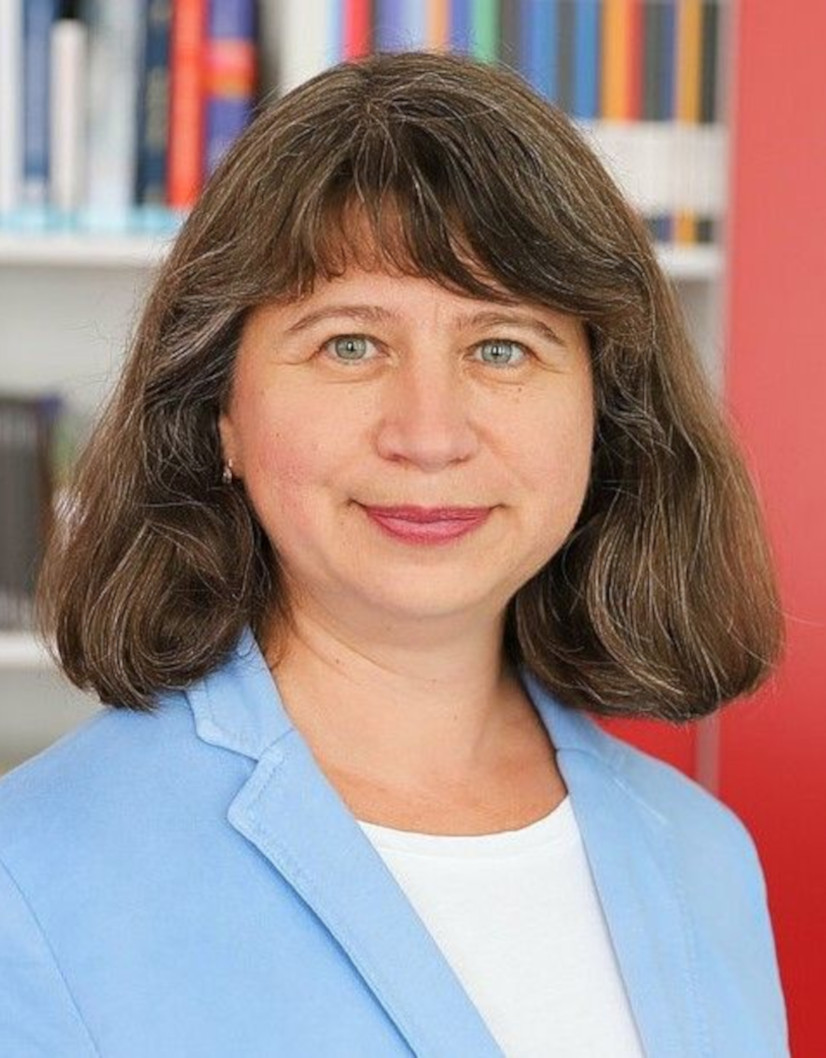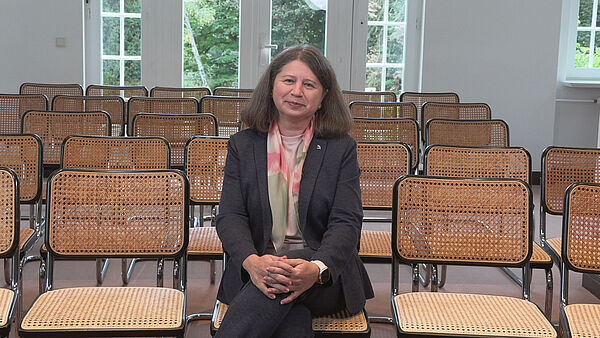
Oksana Mikheieva, Dr.
Professor
Kyiv School of Economics
from September 2025 to February 2026
Born 1971 in Kirovograd, Ukraine
Diploma in History and Dr. in History, Vasyl’ Stus Donetsk National University
Fellowship
VUIAS Fellowship abroad
Arbeitsvorhaben
Dependency and Dissonance: Everyday Life under Occupation
This project addresses the everyday life experiences of people under the Russian occupation in Ukraine. Russian aggression against Ukraine, which began in 2014, led to the annexation of the Crimean Peninsula and the occupation of parts of the Donetsk and Luhansk regions. A full-scale Russian invasion of Ukraine resulted in the occupation of parts of Kherson and Zaporizhzhia regions. Today in Ukraine we can talk about “old” (since 2014) and “new” (since 2022) occupied territories. This allows us not only to rethink the current experience of occupation, but also to look at the consequences of occupation in the long term.The dynamics of the perception of Russian aggression against Ukraine since 2014 have clearly demonstrated the difficulty of identifying the situation as war and occupation. The use of different terms in describing the events and the long and gradual “language adjustment” reflect information warfare, propaganda, and the aggressor’s desire to downplay or hide its role in the events. This is relevant both during the conflict and long afterwards. For example, in post-WWII Soviet Ukraine, the lack of language to describe the World War II occupation and its limited and one-sided nature created a highly ideological and empirically flawed “precedent text” for both institutions and citizens. The preservation of the Soviet narrative in mass consciousness during the Ukrainian post-Soviet era and its vehement opposition to the national one is also reflected in the way occupation and collaboration are perceived and articulated today, under the conditions of full-scale Russian aggression.
Despite considerable scholarly attention to the occupation, many issues require further in-depth understanding. In this project I would like to discuss how war and occupation in real time show the problematic nature of “neutral” terminology. What are the limitations of existing theoretical concepts and of their applicability to different contexts? Why is the identification of situations as war and occupation often delayed? What do we know and understand about the occupation based on a detailed study of it from a historical perspective? Is it possible to apply this knowledge to assess what is happening now, in the context of Russia’s full-scale war against Ukraine?
Recommended Reading
Beck, Marieluise, Jan Claas Behrends, Gelinada Grinchenko, and Oksana Mikheieva, eds. Deutsch-ukrainische Geschichten: Bruchstücke aus einer gemeinsamen Vergangenheit. Ibidem, 2024.
Mikheieva, Oksana, and Irina Kuznetsova. “War-Time Volunteering and Population Displacement: From Spontaneous Help to Organised Volunteering in Post-2014 Ukraine.” Voluntary Sector Review 15, no. 1 (2024): 74–91. https://doi.org/10.1332/20408056Y2023D000000009.
Sereda, Viktoriya, and Oksana Mikheieva. “How (Not) to Study a War-Affected Society: Challenges of Knowledge Production in Ukraine and Elsewhere.” Nationalities Papers, published February 4, 2025. https://doi.org/10.1017/nps.2024.56.
Kolloquium, 18.11.2025
De-facto Borders: Daily Lives under the Violence of Territorial Demarcation
Recent debates about borders consider them as going beyond territory and increasingly focuses on the complexity of the relationship between border and territory. Critical border studies aim to decentre the border, which is not a “taken-for-granted entity” or “Line in the Sand”, but a condition in a constant state of becoming. This allows us to rethink the border not as a given, but as an object of study. The first Russian invasion of Ukraine in 2014 and the occupation of the Crimean Peninsula and parts of Donetsk and Luhansk regions resulted in new demarcations and de facto borders on this territory, creating loci of control – lines/checkpoints/control centres – where none existed before. It also introduced new forms and modes of control that went beyond physical border infrastructure, including in relation to digital content and technologies, policies on crossing borderlines, and ad hoc structures granting permissions to cross borders. With this proliferation of lines, forms, and modes of control, people began to construct complex relationships across a spectrum of binaries and scales: recognition-non-recognition; acceptance-resistance; maintaining-overcoming; gain-loss; heightened experience-neglect.
From the very beginning, the line of contact/line of demarcation created an extremely controversial situation. In fact, it was an interstate border located within Ukraine, where border functions on the Russian side were performed by quasi-state entities – the so-called people’s republics (Donetsk and Luhansk), which in fact were territories occupied by Russia. The line of demarcation was not stable, both because of non-recognition and because of constant territorial compromises, but for the people who were forced to cross it, it was a very real border. The Russian aggression against Ukraine in 2014 created a special reality in the territory of the Donetsk and Luhansk regions, in which the occupied territory of the Ukrainian state, the everyday life of the so called “Donetsk and Luhansk People’s Republics,” and the space of the “Russian world” simultaneously coexisted in people’s perceptions. This also blurred the concept of citizenship, creating conditions in which people in occupied territories found themselves with three citizenships and five or six passports, as part of the coping tactics undertaken by individuals as a mechanism to navigate and oppose the “strategies” of power and as a “hidden” practice of resistance.
Engaging with a multi-scalar understanding of the border, and in particular the everyday experiences of it, my research draws on a series of in-depth interviews conducted between 2014 and 2018 with people who were forced to leave their homes in the occupied territories, those who continued to live there, and those who perceived the border both as an obstacle and as a workplace (taxi drivers, custom officials, smugglers, etc.). Focusing attention on the everyday experiences of people who build their relationships with, across, and around borders reveals a world that is overlooked in geopolitical perspectives and often creates an alternative to official narratives and approaches.
In the context of Russia's full-scale invasion of Ukraine in 2022, the demarcation line first turned into a front line, and recently into a so-called kill zone. “The front line has disappeared. Instead, there is a buffer zone – a conditional strip ranging from 500 metres to 6-7 or even 10 kilometres wide, where Ukrainian and Russian trenches and hideouts are mixed together, which official reports loudly refer to as firing positions” (texty.org.ua). This is an area with completely destroyed settlements, covered with fibre optic cables from drones and mined by both armies, where people are creating alternative spaces for survival and coping with new technical landscapes of physical and social control and discursive landscapes of social power. This allows us to problematize future scenarios for new demarcations in case of conflict freezing, as well as to include in these processes the voices of those whose lives have already been affected and will be affected by these demarcations.
Publikationen aus der Fellowbibliothek
Mikheieva, Oksana (London, 2025)
Bordering and mobilities in Ukraine : inconvenient people in the time of war BASEES/Routledge series on Russian and East European studies
Mikheieva, Oksana (London, 2025)
Bordering and mobilities in Ukraine : inconvenient people in the time of war BASEES/Routledge series on Russian and East European studies
